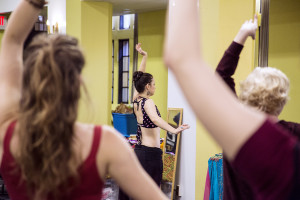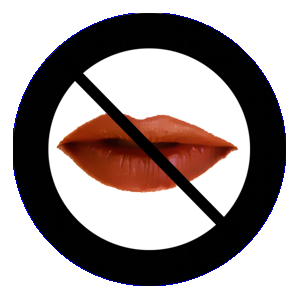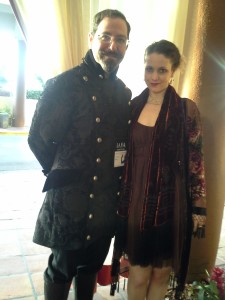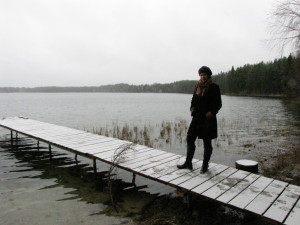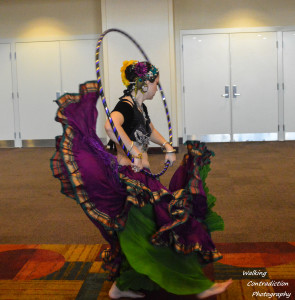
I’ve been writing book reviews for over twenty years now, but when I began, I didn’t really know what I was doing. So to help my colleagues who are newer to this area of academic writing, I’ll share what I’ve learned over the years!
This blog post is structured in the way that makes most sense to me: understanding what academic book reviews are, who their audience is, how they should be structured and styled, and miscellaneous concerns (which are range from the amusing to the deeply ethical). Also, putting this up front so nobody misses it: this is unpaid labor, unfortunately, but you should at least get a free book out of it. If someone’s asking you to write a book review but not making sure you’re getting a copy, what even?!
First, why do book reviews exist? Well, nobody has time to read every new book that comes out in their academic discipline every year. Even the superstars who can hyper-focus don’t manage it. So it’s helpful when academic journals – and I think every major academic journal does this, someone please correct me if I’m wrong – have a section where they publish reviews of major books that have come out in the last few years. And here’s another unfortunate caveat: academic publishing is sloooow, so sometimes a book isn’t reviewed til after it’s been out for a while, and if the journal is held up in getting the most recent issue out (which happens a lot, say, during/after the major disruption of a global pandemic), a book review may not appear for a while, up to 3-5 years after a book’s publication. So it’s not a perfect system, but it’s what we’ve got.
Who is the audience for book reviews? Mostly fellow academics, but as the ivory tower crumbles, we get a whole bunch of people in our audiences who are alt-ac or part-time or some flavor of adjacent to academia, so we can’t necessarily assume only a specialist audience. Plus, gatekeeping is stupid, so we will get lay experts and folks who have put in the time and work to learn how to do research in a given field, whether or not they have degrees in that field.
Because we expect a disciplinary specialist audience for book reviews – or readers who are close enough, or adjacent or interested for other reasons – the tone and style of book reviews tend to be on the slightly formal side, with jargon allowed if it’s commonly used in the discipline. So for example, I’m one of the book review editors at Marvels & Tales, which is the premier North American journal of fairy-tale studies, and hence I expect my readers to have some sense that fairy tales go deeper than Disney, to know what I mean when I refer to structuralism or the ATU index, to know the names and contributions of a handful of major scholars, and so on. And if they don’t know those things, I expect them to be proficient enough researchers to learn them on the fly, in case anything in a text isn’t quite making sense to them.
Otherwise, we tend to prefer clear, direct language; since book reviews don’t have a single overarching idea or argument or thesis statement like academic articles do, you don’t need to get into the convoluted phrasing that many academic authors churn out. Tell the reader what the book’s about, how well you think it accomplishes its aims, in which contexts it might be useful, and you’re basically good to go. This can generally be done in around one thousand words, which is handily enough what the suggested word count at my home base journal is.
How you structure a review is somewhat subjective; commonly you’ll see an opening paragraph describing the premise of the book, some middle paragraphs going through the book chapter by chapter or topic by topic, and a concluding paragraph or two talking about the book’s strong points, flaws, and/or potential uses. But I’ve seen reviewers choose to go through a book’s points in terms of themes or arguments instead of chronologically, and that’s fine too. Sometimes it helps to add context, like if you know that the author has recently pivoted in their career from researching X thing to researching Y thing, or if you know that a book covers a controversial topic in a field.
Speaking of controversy, how blunt should you be if you don’t like the book or disagree with its premise or findings? Well…it’s unlikely that a complete pile of trash will make it through the academic publication process, since that takes years and will have multiple sets of eyes on it. But it does sometimes happen. If you think a book is legit terrible, you can always contact the review editor and be like, “is this book even a suitable fit for your journal? my impression was…” or whatever. Even if a book is not your cup of tea, it probably wouldn’t have been published if it had absolutely no merit, so your job is to locate those good things and mention them.
An academic book review, however, needs to do more than summarize. This is not just your high school book report genre; yes, you should include some summary so your reader gets a sense of what the book is about in case they haven’t read it yet, but you need to also do the brainier heavy-lifting to identify the significance of this book in a larger academic context. Here are some topics you may want to touch on your book review:
- How well the author is positioned to write this particular book (what are their credentials? have they published in this area before?)
- What the author is using as evidence, and how they obtained it? (if analyzing, say, a collection of fairy tales, as happens often in books we might review for Marvels & Tales, when/where was the text published, and in which language, and if not in English, who translated it? if the book’s author did their own fieldwork to collect/obtain cultural data, what are the details of that situation?)
- Which methods and/or theories the author is bringing to this project (major trends in fairy-tale studies, for example, have included structuralism, feminist theory, queer theory, disability studies, Marxist/cultural studies, psychoanalysis, and more recently, critical race theory)
- What the author’s main claims are (a.k.a. their thesis statement or central argument; what is the point of this book, what is their “go big or go home” moment, etc.)
- What the the book’s contribution is, or how we might conceive of its overall significance (is it a new translation of an important text or something more minor, or perhaps the only translation that exists in a given language? is it the first book applying X theory to Y topic? is it poised to become a foundational text in a certain subfield, or does it continue a conversation that a foundational text began?)
- In which contexts the book might be used, or might prove useful (is this something you’d assign in a college course? or is it more likely to gather dust on your bookshelf until you need it for a super specific project?)
- And, specifically continuing to think about which kind of college course this might be useful in, are you thinking more of a general, “intro-to-???” course, or more of a specialized course for majors, or even graduate students? If you don’t feel prepared to address this, consider whether that’s because you’re out of touch with something you should perhaps be in touch with in order to be a good fit for this review, or if this is legit an academic gatekeeping issue because despite having one of the best educations in your field you’ve never been given the chance to supervise grad students (*stares in yes, this is meant to sound like something I’m personally upset about*), you can always ask a colleague who’s more in touch with that experience for their thoughts on it
Finally, you may get lucky and score a book that doesn’t relate to anything political or controversial, but that seems unlikely in this current world. Journal editors may reserve the right to tone down incendiary language, or ask you to reframe your comments. Commenting on outright misogyny, racism, etc. is usually acceptable, and if you want to get a bit sassy with your tone, I know that I as an editor am fine with that choice. But again, be aware that there’s often a lag between the submission of your review and its appearance (possibly up to a year or two or more, thanks to academic publishing moving soooo sloooow), so a clever remark about a current event may end up not-so-current once your review goes live.
This may sound like a lot, but don’t be intimidated! As my co-editor at Marvels & Tales, Julie Koehler, points out, book reviews can be a great first publication for newer scholars simply trying to get used to getting published. The process is very similar (being in touch with editors over email, revisions, etc.) and this can still go on your CV, so you can get acquainted with the process and get a nice-looking publication out of it. This familiarity with the process might help you be less freaked out when it comes time to try to submit a journal article.
Staying on that topic for a moment: we editors are only human, so please give us grace, and we’ll try to extend the same to you. If you find you absolutely cannot complete a book review you agreed to do, please get in touch! We can have you mail the book back to us and we’ll find another suitable reviewer. Even though it feels crummy to have to back out of an agreement, please don’t wallow in shame and ignore our emails. And I’ve been on both sides of this; I currently owe two reviews to two different journals and they might be, errr, three-ish years overdue, which I definitely feel crappy about, but none of the editors have reached out to reassign the book or be like “wtf, mate?” so I am gonna try to buckle up and get them done over winter break (which, granted, is what I said last year). So…we know stuff can get weird, it’s fine, just keep us posted and let us know if an insurmountable obstacle arises so we can make another plan if need be.
Seriously, we’re not here to be downers or gatekeepers. However, with academia trending towards contingent labor rather than full-on tenured professors, it’s becoming a strange situation. Like, in my NTT (non-tenure-track) position, research and publishing are not technically even in my job description…so I guess I do them for funsies because I’m an overachieving masochist? And service at my university “counts” for more in my job evaluations than service to my discipline more broadly, so this time-consuming review editor job I’ve taken on…basically does not “count” for my actual-pays-the-bills job, unlike for my tenured colleagues who teach lighter course loads (for more money!) since they have research and publishing expectations built into their jobs.
In my own field of folklore studies, we have spent a long time (seriously, decades) bemoaning the lack of professionalization of the discipline, but ironically, can we really call ourselves professionals if we literally can’t make a full-time living doing our jobs? As I point out in my article “Theorizing from the Margins” (Journal of Folklore Research, Vol. 58, No. 3, 2021), this tension has rather sobering implications: “Putting the burden of service to the discipline on those who are not employed fulltime within the discipline—and in the US context especially, where lacking full-time employment might mean lacking health care—is an odd contradiction at best, and an unethical, exploitative practice at worst” (105). So uh, be nice to us because we’re canaries in a very concerning coal mine.
A couple of miscellaneous considerations as I wrap this up:
- Whoever wrote the book you’re reviewing might, gasp, read the review! This point hit home for me recently since my own books are now being reviewed, and I have been abjectly grateful at every kind word tossed my way, whereas critiques have hit me pretty hard…I guess I’ll develop a thicker skin regarding this kind of thing with more experience! Just something to keep in mind as you pen your own reviews.
- We book review editors… hm, how do I say this… don’t have any real power. Or influence. Or anything beyond the ability to write some emails and get presses to send out free books. We don’t have any sway with our own press, like the ability to tell when exactly an issue is coming out, or to get deadlines moved. So you can ask us when your stuff will appear in print, but we legit don’t know, and we can’t do much about how slowly academic publishing moves.
- Academic publishing is exploitative and relies on free labor and I seriously don’t know why I keep doing it so, like, while I give good research/writing/editing advice because I’ve been at it for 20 years, maaaaybe take some of this with a grain of salt and try to make better life choices while you still can, kids!
I hope this was useful! I really do think book reviews are a great way to get more involved with your field or one you’re getting better acquainted with, as a scholar or aspiring scholar or other category of (hopefully healthier) human entirely. And if you’ve never published anything before and want to give it a shot, despite how broken academic publishing is (did I mention the whole “expected to work for free” thing?!), book reviews are a pretty chill way to do so.


